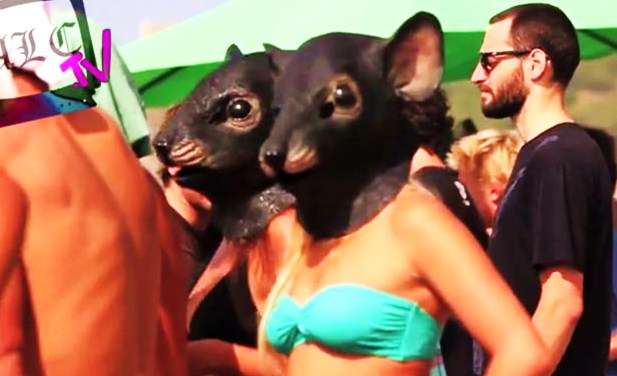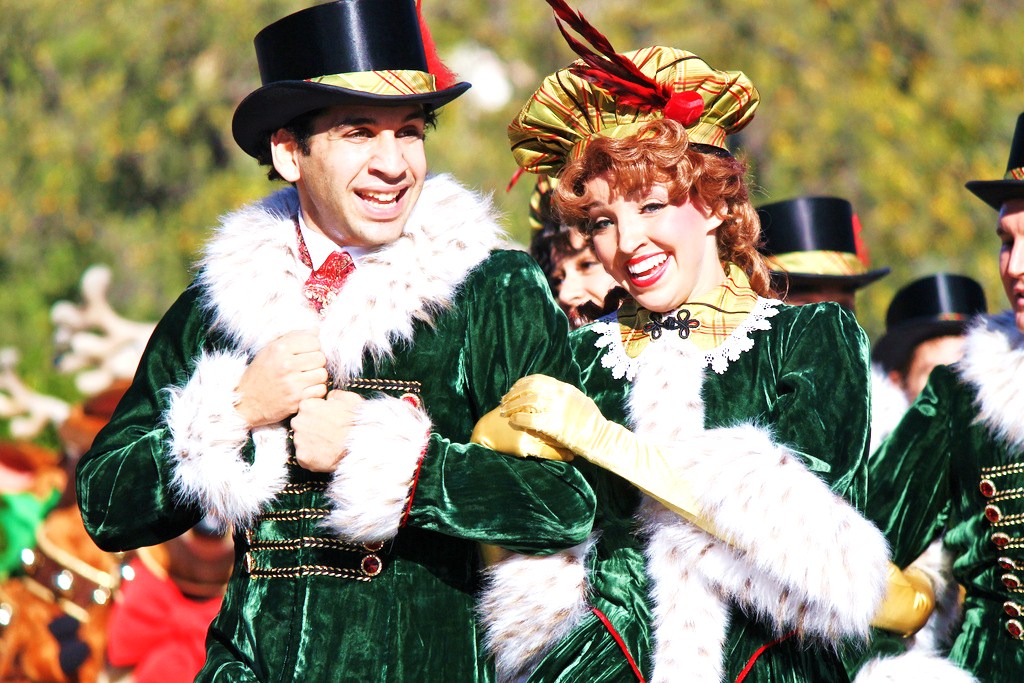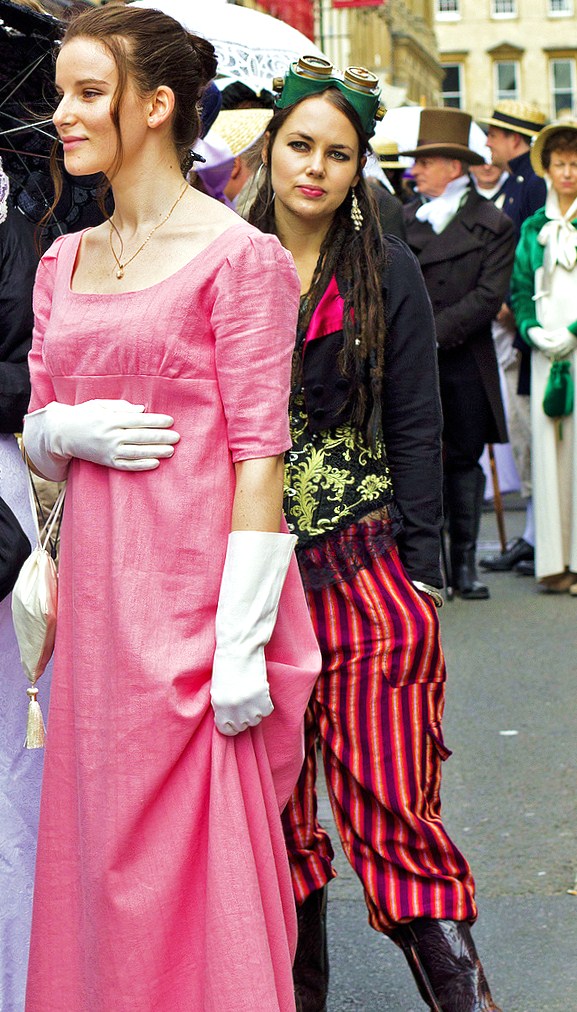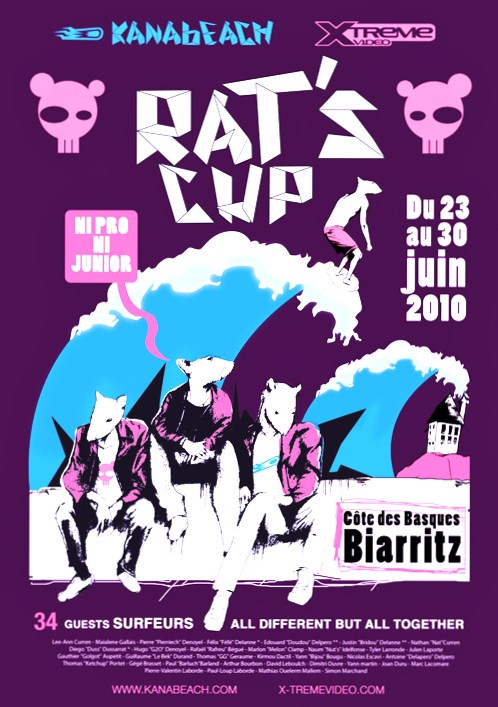
Jennifer Devore
Veronica and the Darlings Go To Del Mar Opening Day 2013
The Darlings of Orange County author Jennifer S. Devore has her well-polished finger on the pulse of Southern California: O.C. beaches, Newport shopping sprees, Laguna Beach dining, San Diego Comic-Con and the Del Mar Racetrack, just to name a few locales. As this year's Del Mar Opening Day (July 17, 2013) coincides beautifully with Comic-Con Weekend (July 18-21, 2013), it seems only appropriate that excerpts from Devore's bikini-and-martini, beach-read novel, The Darlings of Orange County make the rounds this summer. With chapters based on Comic-Con as well as Del Mar's Opening Day, she proffers you wee peeks into the scandalous, saucy, salacious world of her Darlings!
Excerpt from The Darlings of Orange County by Jennifer S. Devore
The weather couldn't have been more perfect if it had been written into a novel: 84 degrees, sunny, clear blue skies, Simpsons-clouds, a light breeze and zero smog. The ocean was sparkling and depending where you were that day, one could see not only Catalina, but also San Clemente Island. The day presented every feature possible for conditions air traffic controllers and pilots called clear and a million. Of course, this was Del Mar and on a summer's day, not to mention Opening Day, nothing less could be allowed. It was probably mandated by the San Diego City Council.
Veronica Darling Goes To San Diego Comic-Con
As San Diego Comic-Con 2K13 fast approaches, enjoy a very apropos excerpt from Jennifer Susannah Devore's The Darlings of Orange County. The setting: The Banshee Pub in Uptown Manhattan. The action: a meeting between our heroine Veronica Darling and her prospective, new agent, Darby Elliot Stone, Esq.
Summer Holiday in France
What's hotter than our Astrid in her trademark uniform of bikinis and Uggs? Astrid in a rat mask, of course!
Any question as to what the hottest couple in Encinitas, California, our very own Pardo and Astrid, (Of The Darlings of Orange County fame: book now $2.99!) will be up to this summer? Pack your Uggs and rat mask, Astrid. It's the annual Rat's Cup in Biarritz, France, along La Côte Basque. Bikinis, boards, booze and the Rat Patrol. Who knows? Maybe the Kia Soul Hamsters will even be there. Now that's a party even our Miss Savannah Squirrel might attend. Maybe.
 What's hotter than our Astrid in her trademark uniform of bikinis and Uggs? Astrid in a rat mask, of course!
What's hotter than our Astrid in her trademark uniform of bikinis and Uggs? Astrid in a rat mask, of course!
Any question as to what the hottest couple in Encinitas, California, our very own Pardo and Astrid, (Of The Darlings of Orange County fame: book now $2.99!) will be up to this summer? Pack your Uggs and rat mask, Astrid. It's the annual Rat's Cup in Biarritz, France, along La Côte Basque. Bikinis, boards, booze and the Rat Patrol. Who knows? Maybe the Kia Soul Hamsters will even be there. Now that's a party even our Miss Savannah Squirrel might attend. Maybe.
I spent a month in Biarritz one week. My Viking and I explored the beaches, bars and casinos with frightening speed and agility. It helps to have beaucoup d'euros; but ce n'est pas necessaire. The beach is the beach and a drink is a drink, no matter where you live or where you travel. To quote Ethan Hawke to Winona Ryder in 1994's Reality Bites, "You see, this is all we need. A couple of smokes, a cup of coffee and a little bit of conversation. You and me and five bucks."
Replace "smokes" with "Gin and Tonics" add a couple of rat masks and some bonkers wave action, symbolically speaking, of course, if you're not on the coast, and you've got the perfect day, en Biarritz, San Diego, Washington, D.C., Rome, Nashville, Seattle, Zermatt, Poipu Beach or anywhere your pin drops on this great blue marble map.
Salut, mes ratons! See you this summer!
DOC Hollywood Actor Wishlist
From the start The Darlings of Orange County reads like a film: pirates, sexy Swedes, beautiful surfers, brooding femme fatale brunettes and volatile redheads running amok amidst the sunny and sandy shores and stores of Newport, Laguna and Dana Point. Natch, any writer will tell you their book should be a narrative film. Yet, clearly some scream for the marquis lights more than others. I mean, just look at the cover art!
Here's the question I posit to those of you whom have read the book: who do you envision in the various roles? Sure, many of the main and supporting characters are dysfunctional, self-obsessed, superego, mendacious murderers, drug dealers and all-around finks; yet, like any good Anne Rice novel, most of them are also hiding some innate goodness and are preternaturally beautiful, without aesthetic flaw. They are mathematically perfect specimens with hearts of bronze.
Suffice it to say there's an opening or two for the likes of Brad Pitt (Kalifornia-Brad, not Benjamin Button-Brad), Matthew McConaughey, Zach Galifianakas, Parker Posey, Adrianne Curry, Anne Hathaway, Ed Helms, Sofia Vergara and the like. Bien-sur, scribbled on a Hello Kitty piece of notepaper, I have my definitive actor wishlist: distinct actors paired with specific characters. Oh sure, I suppose I'll have to sign Johnny Depp, Robert Downey, Jr., Conan O'Brien and some of the other stars dotted throughout the pages. Still, who's your John Everyman playing Pardo, Ryan or Tucker; who's the Betty-next--door playing Veronica, Kieran, Astrid or Sasha?
As far as Chet Darling goes, the scruffy, sketchy, Captain Ronesque land-pirate who lives on a broken down yacht in Dana Point harbor, subsisting by making canvas covers for boats and costumes for Renaissance Faire folk? It's Zach Galifianakis (The Hangover, Muppets Most Wanted) and only Zach on my dream casting list.
Clearly, the title needs to lap dance on the right people. If you were the right lap, who would you cast? Head to Amazon's The Darlings of Orange County forum to see whom other readers envision and let your wishes and fantasies be known! If you're shy, you can even just write us a note here at our Contact page; we'll pass it along to Jerry Bruckheimer personally! Tell Hollywood it's time to bring some H-town sizzle to the shores of the O.C. (Psst. BTW, don't call it that.) Film rights still available. Tweet
- zach
- galifianakis darlings
- of
- orange
- county
- celebrity
- film
- tiein
- book
- to
- movie
- option
- rights
- available
- author
- Jennifer
- susannah
- s
- devore
- brad
- pitt
- Kalifornia
- matthew
- McConaughey
- Parker
- Posey
- Adrianne
- Curry
- anne
- Hathaway
- Sofia
- Vergara
- Johnny
- Depp
- Robert
- Downey
- jr
- Conan
- O'Brien
- galifianakis
- amazon
- discussion
- forum
- hollywood
- talent
- agents
- producer
- seeking
- jerry
- Bruckheimer
The Darlings of Orange County Soundtrack
Taking this playlist idea from a fellow author and friend, Natalie Wright of Emily's House fame, I thought it would be fun to share the soundtrack to my upcoming release. I never actually pondered the tuneage in my noodle, cohesively, as a soundtrack per se; yet, as music is integral to my daily life as well as to my writing, I absolutely had songs that not only played in my head as a running score, but are indeed referenced in the pages of The Darlings of Orange County. For those of you whom will be reading it (Thank you! Releasing next week!!), you'll note specifically in Chapter 54, wherein our heroine Veronica Darling does a guest spot on Imus in the Morning, she has ready her Five Fave songs: a standard requirement for all Don Imus interviewees. She also reveals she used to have a fave Gwen Stefani song, It's My Life ... until she learned on a show that it was also a fave of Alan Colmes and it was instantly tainted.
- the
- cure
- red
- hot
- chili
- peppers
- imus
- in
- morning
- darlings
- of
- orange
- county
- Gwen
- Stefani
- Cypress
- hill
- Insane
- Brain
- Smiths
- pink
- Death
- Cab
- cutie
- pixies
- Savannah
- Williamsburg playlistcom
- stupid
- girls
- natalie
- wright
- Weezer
- californication
- Irish
- rovers
- drunken
- sailor
- fascination
- street
- william
- IT
- was
- really
- nothing
- rich
- girl
- pork
- and
- beans
- where
- is
- My
- mind?
- crooked
- teeth
- blaggards
- beastie
- boys
- intergalactic
Talk Like a Pirate Day? Rock Like a Pirate Day!
JennyPop's Sunny TV and Film: A Geek Girl's Guide to Summer Media
For some folks, summer can mean little more than warmer day
Switched at Mirth: A Family-Friendly Holiday Adventure
When is $750K a pittance? When it's Hollywood-oriented and gets you a feature-length film, shot over sixty-days and employs no less than the formidable and jauntily avuncular Elliott Gould (M*A*S*H, Ocean's Eleven, Friends). When do you say Mazel Tov? When that film blasts out of the holiday film gate like Seabiscuit on fire and ignites a dynamite line straight to Hanukkah and Christmas movie mainstays.
Switchmas (2012, Von Piglet Productions) is so ding-dang cheerful, so sweet, so good-natured, so family-friendly, so inclusive, so sprightly, so hopeful that one just might puke from its syrupy tinge, if it was not such a fun film. Switchmas is Disney-quality, without the Disney-dollars. Should you find your list of holiday flicks in need of an update, would it kill you to add Switchmas? It slots in beautifully with the other tent poles holding firm in the genre: Elf, A Christmas Story, A Charlie Brown Christmas, Christmas Vacation et al.
Mr. Gould, known lovingly to so many of us as Jack Geller, Ross & Monica's dad, isn't the only point-of-light in the Little Film That Could. David Deluise (Wizards of Waverly Place, Stargate-SG1) portrays Max Finkelstein, an optimistic auteur on the fringes of Hollywood and president of Finkelstein Films: "Making the World You Want To See". Max believes he has everything but "a name" to catapult him to Woody Allenesque fame and respect. (If The Reindeer From Planet 9 can't get him an Oscar, what can?) As Max tells a potential client (art imitates life here), "Believe me! You don't need big money to make a movie with big heart!" When "a name" drops in his lap, Max gets the filmic opportunity of a lifetime. The name appears in the form of has-been, aging, bubble-gum starlet Jennifer Cameo, best-known for her role as Desperate Jane (played by Julianne Christie). I am Desperate Jane! I have fans and a blog and I am in control!, Cameo rants desperately to anyone left in her fan-base. To optimize Ms. Cameo's last gasp for stardom, Max must personally rip out and eat his own son's heart ... metaphorically-speaking, of course.

"Its' the Finkelstein Christmas tree!"
"Finkelsteins do not have Christmas trees."
"Why not?"
"You know why! We're Jewish!"
"Well do we have to be?"
"Ira!"
"I mean at Christmas?"
"You know what? Heritage, tradition, culture. Who needs it?"
Resistance is futile. Therein lies the rub. Little Ira J. Finkelstein wants nothing more than to celebrate Christmas. "He's obsessed with The Christmas!" To assuage this desire, Max and Mama Rosie agree to take him to Aspen for Christmas, land of twinkle lights, snowy windowsills, hot cocoa and Louis Vuitton luggage. Then, Miss Cameo is attached to The Reindeer From Planet 9 and Aspen go bye-bye. "If this goes good, we can go to Aspen every year". Instead, even after a heart-melting plea from Ira about promises and mishpucha, Mom and Dad ship him off, to where else? "Florida, for The Christmas". Now, a holiday with the Flah-ri-dah grandparents includes a dream grampy: supportive, doting and effervescent Sam Finkelstein, played to freylech perfection by Elliott Gould.
In classic, Shakespearean-style though, during Ira's layover at the airport, on his way to "stupid Florida", he meets fellow holiday misanthrope Mikey Amato: a poor, Christian boy of newly-divorced parents who -wait for it- wants nothing more than to spend Christmas on a warm beach with some rich grandparents. Poor little shnook, he's on his way to "stupid Christmastown" for a week of gift-giving, parade-going, snowman-building and cocoa-drinking with his gentle, gentile, WASPy cousins, who, fortunately, haven't seen him in quite a while. Boom! A quick switch of some nerd glasses, an old parka, bangs brushed down and the convenient exposure that even Ira's own grandparents haven't seen him in quite a while either, and voilà! You've got The Switchmas. "That's no Finkelstein! It's a different kid! What, is he blind?!"
There's even a pup. Any good holiday film has a dog. This little guy is Killer, a.k.a. Mistletoe: a big-headed, sweet-eyed pit bull who brings to mind The Little Rascals' Petey.
To boot, if you happen to have a grandparent-Jonesing, Switchmas can assuage that, too. Mikey's all too-foreign poolside, beachfront, grandparent-sojourn in The Sunshine State is a non-stop party of chocolate geld, fruity drinks, positive affirmations and socks-and-sandals. (To this girl, it sounds equally perfect to my own Christmastown luxuries.)
(Can we talk?) Raised in a beautifully festive Christmas household, as in Mom could teach Martha Stewart a thing or two, I was annually blessed with a pile of presents that would make Santa blush and enough hugs and kisses for a Strawberry Shortcake episode; it was a veritable embarrassment of riches that happily continues to this day. What did I lack, however? Grandparents. Always feeling I missed out on something grand in this respect, characters like Sam and Ruth Finkelstein bring a broad smile to my gentile pearlies. Moreover, my paternal great-grandparents and grandparents were Jewish, hailing from Vienna, Austria and, eventually, New York City (The Bronx and Long Island): Jakob & Irma Gerstl, and Rudi & Rosalyn Gerstle, respectively. Because I never got to know them, my noodle has compensated over the years with a special love for vintage handbags, antique jewelry, The Golden Girls, Agatha Christie novels and Queen Elizabeth II. (What is in Her Majesty's purse, BTW? Did you notice she even has it next to her on the floor in the 4G Royal Portrait? Dying to know. I bet Werther's Originals, a Waterman pen and a surplus of Irish-linen hankies.) As Angela philosophizes on The Office, "Some of us don't have grandmothers. Some of us have to be our own grandmothers."
(Back to the film ... ) Best of all, for those of us endlessly searching Netflix' "Recently Added" queue for the unequaled, quintessentially '90s TV-series Northern Exposure, the fair Cynthia Geary plays Libby Wilson, the beautifully-blonde auntie with the rosy, mountain-air glow who awaits her, fortunately, long-unseen nephew in Christmastown, WA. True, she is meant to look haggard and toiled, the overworked mom of three and neglected wife to an alcoholic, unemployed schmegegy of a dad; but the MUA failed here, folks. Despite the tousled locks and the persistent frown, Geary (Northern Exposure, Smoke Signals) looks as fresh-scrubbed and nature-girl beautiful as she did twenty-plus years ago as Shelly Tambo-Vincour in the wilds of Cicely, AK. (Apropos, Northern Exposure was shot on location in Roslyn, WA; Switchmas was shot in Leavenworth, WA and Seattle.)
As with any good film serving as part-morality play, there are a few direct lessons involved. Unaware of the notable, Jewish contributions to Christmas song and film? Pay close attention to Christmastown's Santa Claus, Murray Lefkowitz. (This means you, Garrison Keillor.)
"A Jewish Santa?"
"Who else would work on Christmas?"
Fretting about the melding of Hanukkah and Christmas on the proverbial celluloid? Meh. Christmas is a mélange, a spiritual and pagan amalgam of millennia stewed in winter celebration, thanksgiving, festivity and bringing a little light to the shortest, darkest days of the year. The Christmas we know today was not celebrated until 4thC C.E., when Emperor Constantine defected from his pagan beliefs and essentially founded Christianity. He declared the 25th as the certifiable day of joy to coincide with the same time during which the ancient Babylonians, Romans, Celts and Norsemen had already been celebrating for eons, knowing full well he would not be able to stop them from said-jubilation and Bacchanalian endeavours.
In the end, I am a wordsmith; words mean something to me and are not to be tossed about hither and thither. Therefore, I refrain from the ignominy of such phrases as "government aid", "literally starving" and, worst of all, "instant classic". However, I am finding it sehr difficult to refrain from the latter. Switchmas might just be that, an instant classic. Only time will tell, and JennyPop's annually-updated, recommended, Christmas and Hanukkah viewing list.

Because this stuff is important, especially if your name is listed:
Directed by
Sue Corcoran
Written by
Douglas Horn
Angie Louise
Sue Corcoran
Cast
David Deluise as Max Finkelstein
Elijah Nelson as Ira J. Finkelstein
Elliott Gould as Sam Finkelstein
Angela DiMarco as Rosie Finkelstein
Justin Howell as Mikey Amato
Cynthia Geary as Libby Wilson
Follow @JennyPopCom #Christmasfilms #Switchmas
- quotes
- review
- Hanukkah
- movie
- holiday
- grandparents
- Von Piglet Productions
- Ira J Finkelstein
- family film
- Christmas tree
- Disneyland Hotel
- Disneyland
- menorah
- Elliott Gould
- christmas
- familyfriendly
- adventure
- holiday films
- holiday movies
- Jewish families
- Christian families
- Washington State
- Florida
- Florida in Winter
- Snow
- sunshine
- sun
Austenland: Prudish Delight
Literature nerds and history dorks have superheroes, too: Edgar Allan Poe, William Shakespeare, Mark Twain, Anne Rice, Lucy Maud Montgomery, Laura Ingalls Wilder, Ken Burns, The Brontë Sisters, Thomas Jefferson, David McCullough, Miss Savannah Squirrel (of course!) and a whole league of historians and novelists. The standout heroine for the geek girly-girl strain of this genre? Miss Jane Austen, indeed!
As one of this strain, not to mention a long-time member in good standing of the comic genre, I can affirmatively state Miss Austen is our Wonder Woman, Superman, Batman and Scully all wrapped beautifully under a tidy, feathered, grosgrain-trimmed, Regency bonnet. (Yes, Scully is not only a comic book heroine but also has her own action figure; I own both.) Wherein this modern age, sometimes, some feel like a fish out of water, Miss Austen gives us everything we need to cope: literature, vocabulary, historical detail, rigid manners, meticulous décor and blissfully asyndetic conversation. Austen is the It Girl of Britain's Regency era and, where softer, quieter geeks are concerned, she and her characters are models of grace, gentility and marmoreal skin in what is a surely a more tarnished, gauche, crude and frumpy world. Jane's superpower? A soft voice and an extensive vocabulary. One must lean in close to hear her pithy, social banter. You must lean into her; therein lies the power. Where there is power, there is also the threat of downfall. Her silver bullets and Kryptonite? 140 characters and scatalogical humour.
If Austen and her characters (Elizabeth Bennet, Emma Woodhouse, Catherine Morland, Mr. Darcy) form a high society of superheroes, Snooki and her double-digit IQ, vulgar ilk are their nemeses. With the whip of a bonnet sash, a quick flick of an embroidered, Irish handbag and the lightning-fast scribe of a handwritten thank you note, Miss Jane and her Society could rid the culture of Jersey June bugs, Real Housewives, Kardashians and Hooters. Taste always trumps tacky.
 If being a bit of a prude is not quite a punishable crime today, it is unquestionably dorky and out of vogue. Jane Austen assuages the modern prude with emergency rations of taste, etiquette and elegance when necessary. She gives us pale, graceful necks sans tan lines, delicate drop earrings, amusing chapeaux, bone china and witty repartee. Jane gives us Gwyneth Paltrow, Kate Winslet and Keira Knightley sipping English breakfast tea and shading their pearlescent bosoms from the harsh, Yorkshire sun with the prettiest of Battenberg lace parasols. It is like The Real Housewives of Atlanta and Honey Boo Boo never slithered under the garage door and into our house.
If being a bit of a prude is not quite a punishable crime today, it is unquestionably dorky and out of vogue. Jane Austen assuages the modern prude with emergency rations of taste, etiquette and elegance when necessary. She gives us pale, graceful necks sans tan lines, delicate drop earrings, amusing chapeaux, bone china and witty repartee. Jane gives us Gwyneth Paltrow, Kate Winslet and Keira Knightley sipping English breakfast tea and shading their pearlescent bosoms from the harsh, Yorkshire sun with the prettiest of Battenberg lace parasols. It is like The Real Housewives of Atlanta and Honey Boo Boo never slithered under the garage door and into our house.
Jane leaves her admirers gleefully free of red Solo cups, texting, Twitter, fast food, zombies (with the exception of Pride and Prejudice and Zombies by Seth Grahame-Smith), Facebook, reality TV, Vegas, cell phones, Pandora, 24-hour news, TMZ, gaming, CGI, toe rings, Pirates of the Caribbean V, sailor language, Breaking Bad and stupidly oversized iPads held aloft to Tweet pictures taken at the seashore. To be sure, I enjoy some of the above, minus Facebook, zombies and fast food. Whilst I do have a strong prudish streak, I am not a true prude. In fact, I may be the only one to defend Miley Cyrus' plushie sex twerking at the VMAs and, if you've read my latest novel, The Darlings of Orange County, you know full well I have a twerky side. Still, like spiced rum, Nutter Butters and plushie twerking, everything has its time, place and limits. They do not compose healthy, daily sustenance. Where there is overload, there is overkill and often not enough mouthwash in the world. Is not Miss Austen a lovely diversion, an occasional antiseptic, if you will?
Jane's world can be a balm, but it can also be a gilded trap: Austenland. Thus, the case for Jane Hayes, a thirty-something Austen addict played convincingly by freshly-scrubbed, natural beauty Keri Russell (Felicity, Running Wilde, Wonder Woman). Austenland is a scrumptious, directorial debut for Jerusha Hess (Napoleon Dynamite) and a brilliantly cheery romantic-comedy based on the novel of the same name by authoress Shannon Hale (Rapunzel's Revenge, Princess Academy).
If audience engagement is any marker, Austenland is running for the roses. Like New Orleans, Disneyland or the Nordstrom Anniversary Sale, if you are not having a great time, you might be a zombie. Replete with, yes, mostly older women en seul, most everyone guffawed, tittered, giggled and ahhhed throughout all posh ninety-seven minutes. The few men I did see had the relaxed look that comes with watching a non-taxing film in comfy, recliner theater seats with their feet up and their Birkenstocks left on the floor. (Decidedly very non-Austen.) To be sure, the men I did see were also accompanied by their ladies. My own Mr. Darcy knew we had to see Austenland after viewing the trailer at a recent showing of Blue Jasmine. "Well, we have to!" he insisted with a chuckle. "That is so you!"
Spot on, in fact! From Jane Hayes' flashbacks, taking her own tea cup and saucer to a cafe, to her life-sized, cardboard cutout of Mr. Darcy (mine was Johnny Depp), to theme dressing at the airport, Austenland has happy, quiet, dork handwritten all over it.
The casting is polished to perfection: not a bruised apple in the barrel. Jennifer Coolidge (Best in Show, Legally Blonde, 2 Broke Girls) steals the show. Her tacky-but-sweet American with cash is sheer precision. An oversized Barbie in Regency hot-pink, her character of Miss Elizabeth Charming is an absolute hoot. 'Er 'orrible, overdone, Eliza Doolittle accent is as amusing as her hats (which I actually covet) and her enthusiasm for the total-immersion English holiday is contagious, making me very pleased with myself that I wore a Regency-inspired, empire-waist, Japanese mini-dress and pewter drop earrings for the occasion.
Lady Amelia Heartwright, played fetchingly by Georgia King, is a fellow Austenland traveller, filling out the triad of ladies on literary holiday. She is a whimsical, living doll reminiscent of silent-era actresses known as much for their pouty lips, porcelain skin and large eyes as their comedic timing and X-CU expressions. Hopping hither and thither like an exquisite, mischievous rabbit, King keeps the laughter cavorting across the vast estate lawns. Keri Russell plays the lead role as Jane Hayes/Miss Jane Erstwhile with a delicate realism any Austen dork knows all too well: social awkwardness, happy oblivion and a nearly overbearing obsessiveness that only the best of friends and spouses will ever understand or tolerate.
In Austenland, run with the icy business head of Mrs. Wattlesbrook, played deftly by Jane Seymour, the men serve as either eye candy or hired soul mates. Ironically, it takes a dose of holiday fiction for Miss Erstwhile to realize that her blanket assessment, "apparently the only good men are fictional", is wrong ... or is it? For it is in Austenland where Jane finds her Mr. Darcy ... or is it? Maybe it is only once she is free of the Austen spell ... or does the Austen spell indeed prove the very magic she needs? A torrential English rain, a soaked, lovely damsel-in-distress, an impossibly handsome Mr. Henry Nobley (played by the utterly smoldering JJ Feild, known to some as the tragically-fated, beautiful gentleman-officer, Major John André of AMC's TURN: Washington's Spies) on a grey horse and a linen dress ripped by said-Mr. Nobley, exposing a bit of fine, Regency leg, certainly never hurts the start of a romance.
I haven't clapped aloud in a theater in quite a while. Many moons ago, I did so at the end of Pirates of the Caribbean: The Curse of the Black Pearl, the first of the POTC franchise. Similar to POTCI, Austenland not only provides fun storylines and sympathetic characters, but enough visual stimuli to ensure at least a second viewing: costuming, set design, colours, location, landscape, architectural detail and all the fine points one would only notice when they are omitted. Emerging from POTC I in 2003, my own Mr. Darcy excitedly said, "Now that is what going to the movies should be like! Wow! That was awesome!" He said the same thing as we emerged from Austenland last week. "Maybe it's because I know you and Lesli so well," referring to my fellow historical-dorkette, "but that was hilarious!"
True, perchance because he could see my cohort and me in so many situations, he laughed as hard as most of the women in the theater, their laughter also betraying intimate understanding. By the laws of comedy, good writing and production values though, this film is just Plain Jane good stuff for anyone! Certainly, as comedy is relative, knowing the characters adds another layer of humour. I do know these people; it does add another layer.
Many will roll their eyes. "Sounds more superficial than superhero. Where's the superheroine in all this twaddle? What is so powerful about being prudish, posh and persnickety?" The power lies not in the aesthetics of Austenland or any other pretty mis-en-scène; the power lies in the cheerful confidence it takes bring bits of this old-fashioned life, including the quickly disappearing art of social conversation, to our modern one. The power lies in being true to one's inclinations, no matter how unpopular. Take a look around, desperately casual, blasé and mouthy is all the rage; quiet, modest and polished is not. Being a geek girl, I am told ad nauseam, means not taking guff from anyone. As far as I can see, ass-kicking can come via Knives Chao, Power Girl and Lara Croft as easily as it can via Elizabeth Bennet, Laura Ingalls and Anne Shirley.
Power can carry a parasol through a gauntlet of terrifying, sniggering, beach teens; power can use far too many words to share a simple link; power can spend years writing about a colonial squirrel, knowing most will only laugh about it while a mere handful will read the tales; and, power can take an hour to sip her tequila shot like it is a Royal Doulton cup of Darjeeling, despite friendly taunts and peer pressure to chug. Some of us do not chug, ever.
Being true to oneself is today's real superpower. If only I had a pearl drop earring for every time someone asked me with a poorly hidden smirk, "Why are you so dressed up?", "You're not seriously wearing that?" or "I can't deal with your emails. Too many big words.", well, I would have even more pearl drop earrings than I already do. Geeks come in all shapes and sizes. If your shade of pale is lavender-hued, you use a soft voice, too many big words and carry an analog copy of Pride and Prejudice, own it.
Psst ... when you see Austenland, stay put for the end-credits. It all gets a little hot in here!
- JJ
- Feild
- edgar
- Allan
- Poe
- william
- Shakespeare
- mark
- twain
- anne
- Rice
- Lucy
- Maud
- Montgomery
- laura
- ingalls
- wilder
- Ken
- burns
- the
- Brontë
- sisters
- thomas
- jefferson
- david
- McCullough
- Savannah
- squirrel
- Austenland
- jane
- Austen
- literature
- Pride
- and
- Prejudice
- mr
- Darcy
- Jennifer
- Coolidge
- Keri
- Russell
- Georgia
- King
- Jershua
- Hess
- Shannon
- Hale
- romantic
- comedy
- review
- prudish
- Regency
- period savannah
- squirrel


